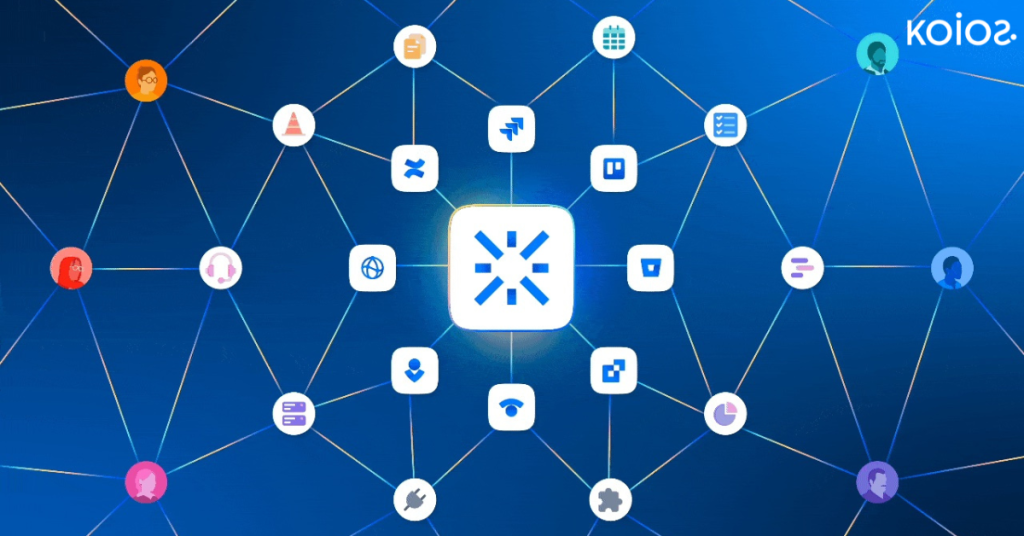
Atlassian Intelligence – is it ready to takeover our everyday tasks?
Atlassian has introduced a new feature to its suite: Atlassian Intelligence. This addition, which began its journey in the beta phase in April 2023, marks Atlassian’s foray into integrating AI into its well-established collaboration tools. But the question arises: “Is Atlassian Intelligence ready to help us in everyday tasks?” Let’s delve into what Atlassian Intelligence offers and assess its readiness to enhance our daily workflows.
What is Atlassian Intelligence?
Atlassian Intelligence is a feature designed for enterprise and premium users of Atlassian’s products. It leverages the capabilities of OpenAI models to enrich the functionality of tools like Confluence, Jira Software, and Jira Service Management. The integration of AI aims to streamline processes and improve efficiency in team collaboration and project management.
Key Features of Atlassian Intelligence
-
Content Generation and Summarization: This feature allows users to create and condense content across various Atlassian platforms. It’s particularly useful in managing extensive documents or reports, helping teams to quickly grasp key points and make informed decisions.
-
Advanced Searching: Enhancing the search functionality within Atlassian products, this feature aims to make information retrieval more efficient, saving time and effort in locating necessary data.
-
JQL Query Generation: Atlassian Intelligence simplifies the process of constructing Jira Query Language queries by translating natural language inputs into JQL. This feature is a boon for those who find traditional query construction challenging.
-
Automation: By automating repetitive tasks, Atlassian Intelligence seeks to reduce manual workload, thereby increasing overall productivity within the Atlassian ecosystem.
-
Virtual Agent: In the realm of customer support, the virtual agent feature in Jira Service Management offers AI-powered assistance. This tool is designed to provide immediate help and automate routine support interactions, enhancing the user experience and response efficiency.
Exploring the capabilities of Atlassian Intelligence reveals its potential as a significant enhancement to the Atlassian suite. It targets key areas such as content management, search efficiency, query simplification, automation, and customer support, where AI can make a substantial impact. However, the effectiveness of Atlassian Intelligence in everyday tasks hinges on its practical application and the user experience. Like any new technology, particularly in its beta phase, it presents a learning curve and areas for refinement. Its success will largely depend on how seamlessly it integrates with existing workflows and the adaptability of users to its AI-driven features.
Pros and Cons
As Atlassian Gold partners, we recently had the opportunity to delve into the intricacies of Atlassian Intelligence during a presentation at our Atlassian office event. This session provided valuable insights into the advantages and challenges of this AI-driven feature, helping us understand its impact on our workflows. Here’s a summary of the key pros and cons our colleagues discussed:
Pros of Atlassian Intelligence
-
Generating and Searching Content: Atlassian Intelligence excels in creating and summarizing content, making information management more efficient across various Atlassian platforms.
-
Natural Language Processing to Jira Query Language: The ability to translate natural language into Jira Query Language (JQL) is a significant advantage, simplifying complex query constructions for users.
-
Reducing Repetitive Tasks for Agents: AI features in Atlassian Intelligence help reduce the burden of repetitive tasks, particularly for support agents, enhancing productivity and focus on more complex issues.
-
Safeness and Privacy of Data: A notable strength of Atlassian Intelligence is its commitment to data security and privacy, ensuring that sensitive information remains protected while leveraging AI capabilities.
Cons of Atlassian Intelligence
-
Ban and Untrue Generated Responses: A primary concern is the potential for generating banned or inaccurate responses, which can lead to misinformation or inappropriate content dissemination.
-
Lack of Automation in JSM and JSQ: There’s a noticeable gap in automation capabilities within Jira Service Management (JSM) and Jira Software (JSW), which limits the full potential of AI in these areas. AI automation help is now available only on Confluence, yet there are some rumours that it is coming to JSM and JSW soon.
-
Visibility and Notification Issues in Customer Channels: In customer channels, where users are talking to virtual AI agents, the visibility of the entire history and the distribution of notifications to all participants can be overwhelming and potentially clutter the communication flow.
-
Availability: The availability of Atlassian Intelligence, particularly in its current phase, is limited, which may restrict its accessibility and utility for a broader range of users. Currently, Atlassian Intelligence is available only for premium and enterprise users.
The presentation at our Atlassian office event highlighted both the strengths and areas for improvement in Atlassian Intelligence. Understanding these aspects is crucial for us as Atlassian Gold partners, as it guides us in effectively utilizing and advising on this AI feature in our workflows and client interactions.

Atlassian Intelligence event in Koios office
To sum up
Atlassian Intelligence stands as a significant advancement in AI integration within team collaboration tools. Its potential to transform everyday tasks is evident, yet its current state suggests a need for ongoing development and user feedback incorporation. As Atlassian Gold partners, our understanding of these pros and cons is vital in effectively leveraging Atlassian Intelligence in our workflows and advising clients. The future of Atlassian Intelligence seems promising, but its journey towards becoming an indispensable tool in the Atlassian suite is an ongoing process, shaped by user experiences and technological advancements.